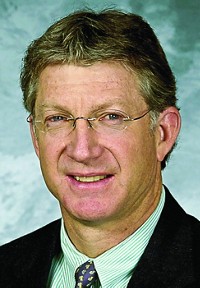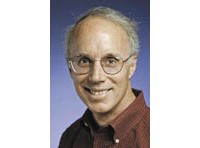Advertisement
Grab your lab coat. Let's get started
Welcome!
Welcome!
Create an account below to get 6 C&EN articles per month, receive newsletters and more - all free.
It seems this is your first time logging in online. Please enter the following information to continue.
As an ACS member you automatically get access to this site. All we need is few more details to create your reading experience.
Not you? Sign in with a different account.
Not you? Sign in with a different account.
ERROR 1
ERROR 1
ERROR 2
ERROR 2
ERROR 2
ERROR 2
ERROR 2
Password and Confirm password must match.
If you have an ACS member number, please enter it here so we can link this account to your membership. (optional)
ERROR 2
ACS values your privacy. By submitting your information, you are gaining access to C&EN and subscribing to our weekly newsletter. We use the information you provide to make your reading experience better, and we will never sell your data to third party members.
Environment
ACS Award In Colloid & Surface Chemistry
Sponsored by Procter & Gamble
by David Pittman
January 24, 2011
| A version of this story appeared in
Volume 89, Issue 4
When the publisher Elsevier expanded Colloids & Surfaces A in 2001, the journal staff searched high and low for a new editor. They settled on a well-known professor in the field from Carnegie Mellon University: Dennis C. Prieve. “That they asked Dennis to serve as editor is indicative of his standing in the discipline,” says Lee R. White, a professor of math and engineering at the University of South Australia.
Prieve, 63, invented total internal reflection microscopy (TIRM) in the late 1980s. The technique exploits the exponential decay of a scattered light wave to monitor with nanometer resolution the distance between a single microscopic particle and a flat plate. “It’s much more sensitive to measuring weak forces than any of the other techniques that are around,” Prieve says. “That’s what makes TIRM unique.” After measuring the changes in distance between particles over a period of time, researchers can use Boltzmann’s equation to infer the potential energy of the particle.
“I watched him start from scratch on this initiative, with many skeptics pointing out the difficulties facing exploitation of the concept,” says John L. Anderson, president of Illinois Institute of Technology. “Dennis advanced the concept, built the apparatus with his students (several Ph.D.s), and then used it to verify or identify deficiencies in various theories of particle-particle boundary interactions.”
Prieve has also made advances in the theoretical understanding of the phenomena of diffusiophoresis, the chemically stimulated locomotion of particles. Without knowing it, automobile maker Chrysler used the principle in the 1970s to apply a coat of primer to the carbon steel frames of cars. When a steel frame is immersed in latex paint with dilute hydrofluoric acid and hydrogen peroxide, the latex particles deposit on the steel surface. Prieve explained that the deposition occurs by diffusiophoresis: The acid attacks the steel and induces an electric field at the metal’s surface that attracts the charged latex particles to the steel.
Prieve is president of the International Association of Colloid & Surface Scientists and a fellow of the American Institute of Chemical Engineers (AIChE). In 1995, he won the Alpha Chi Sigma research award from AIChE. Prieve also received the 2007 Lectureship Award of the Japan Chemical Society’s Colloid Division.
His expertise is recognized around the globe. Prieve is regularly asked to speak at international meetings and serve as the foreign examiner on Ph.D. defenses. He almost single-handedly organized the Gordon Research Conference on Chemistry at Interfaces in 2001 and “saved that venerable tradition in American colloid science and engineering from imminent extinction,” White says.
Prieve, a Wisconsin native, attended the University of Florida and earned his bachelor’s degree in chemical engineering in 1970. He then traveled to the University of Delaware where he studied for the Ph.D. he earned in 1974. He’s taught and researched at Carnegie Mellon since 1975.
In total, “Dennis Prieve has been a major force in advancing the science of colloidal phenomena,” Anderson says.
Prieve will present the award address before the ACS Division of Colloid & Surface Chemistry.





Join the conversation
Contact the reporter
Submit a Letter to the Editor for publication
Engage with us on Twitter